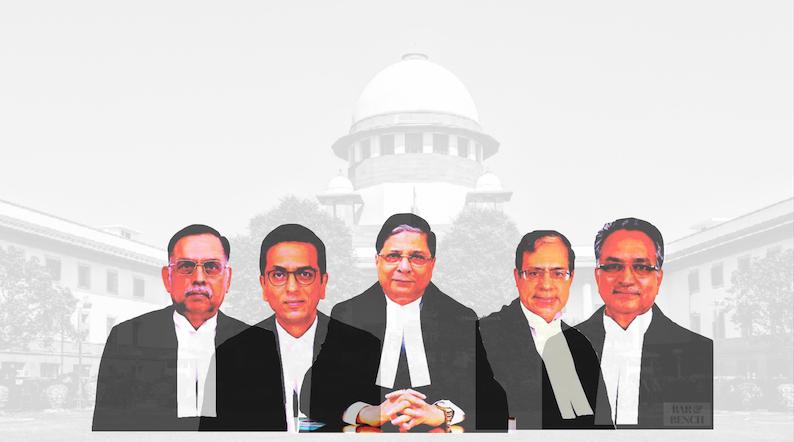On whether parliamentary committee reports can be taken judicial notice of as evidence of facts. SC answers in the affirmative.
DYC J reading his concurring judgment....
Refreshes the Court's memory on Prof. Manindra Agrawal's report and the conclusions he drew from that for the Court.
Points to how CEO's answers to failure rates are evasive. "Their idea of candour is perhaps different from ours," he says.
Pre-statute position.
100 crore people's biometrics captured without written authority. SD argues that in a republic like ours, basic rule of law demands that there has to be written authority for all exercise of power!
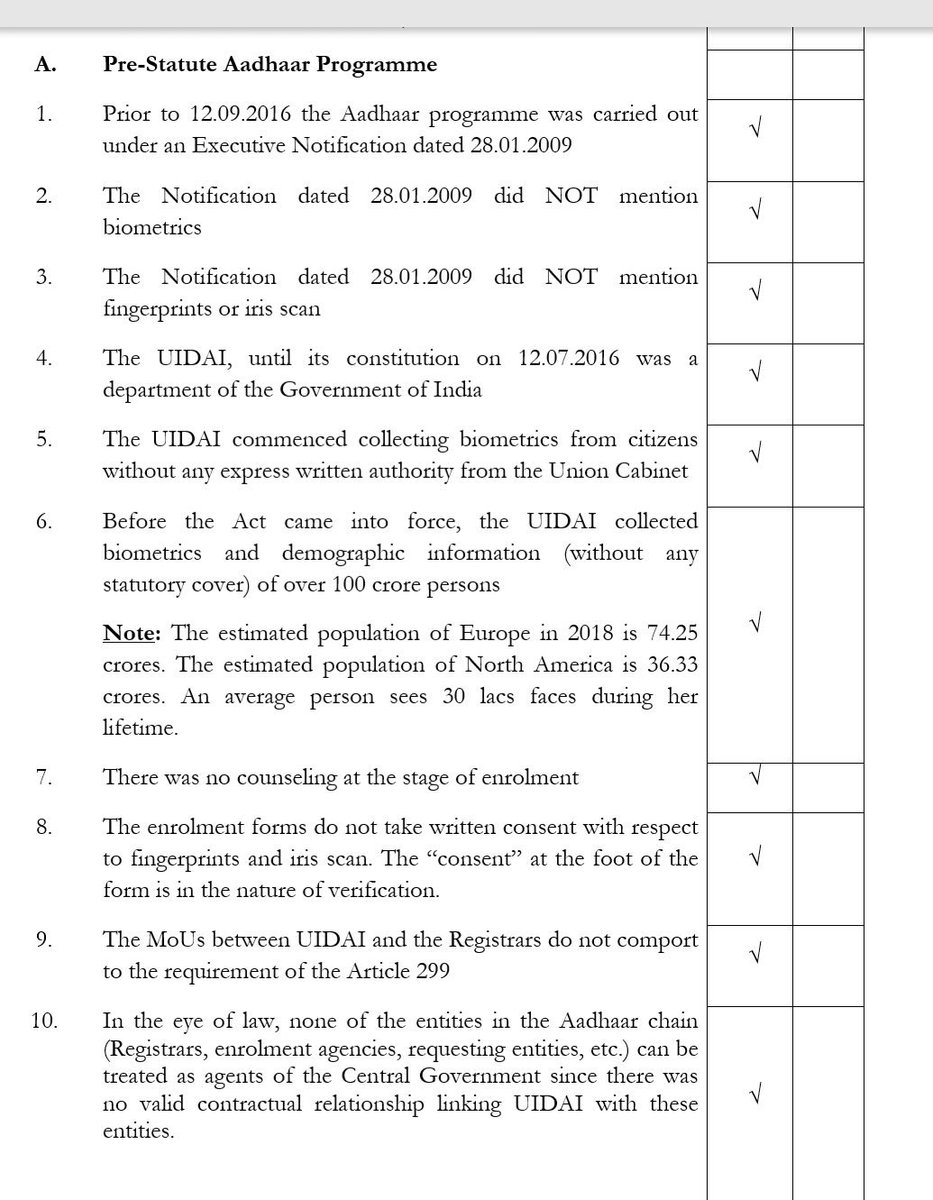
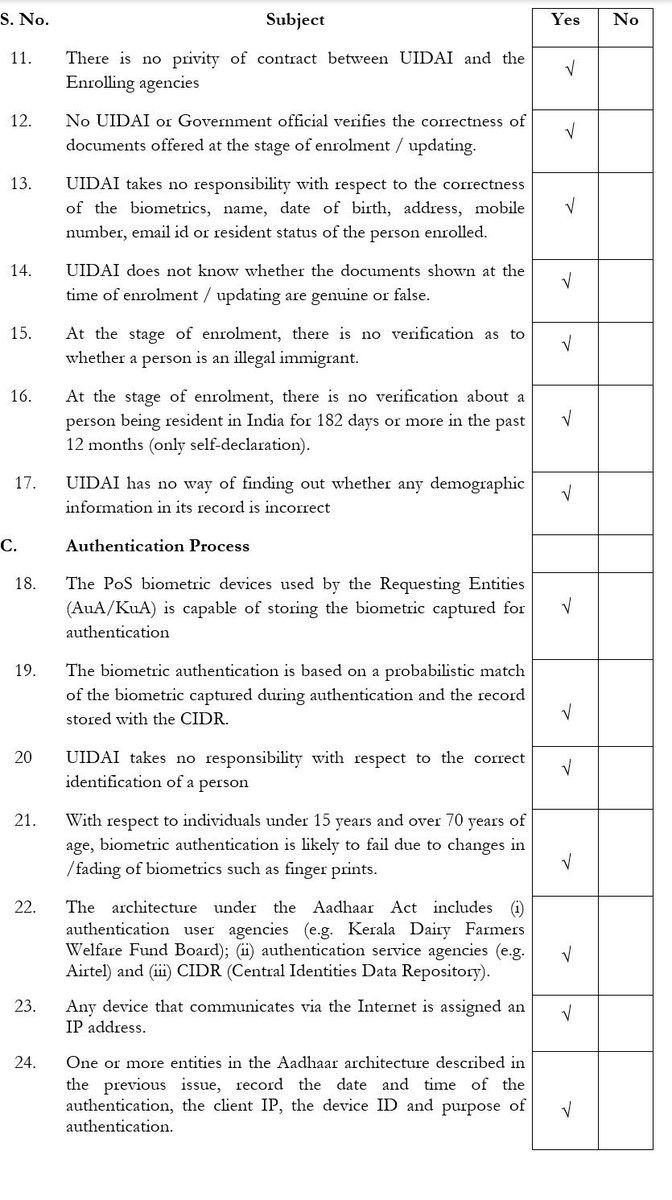
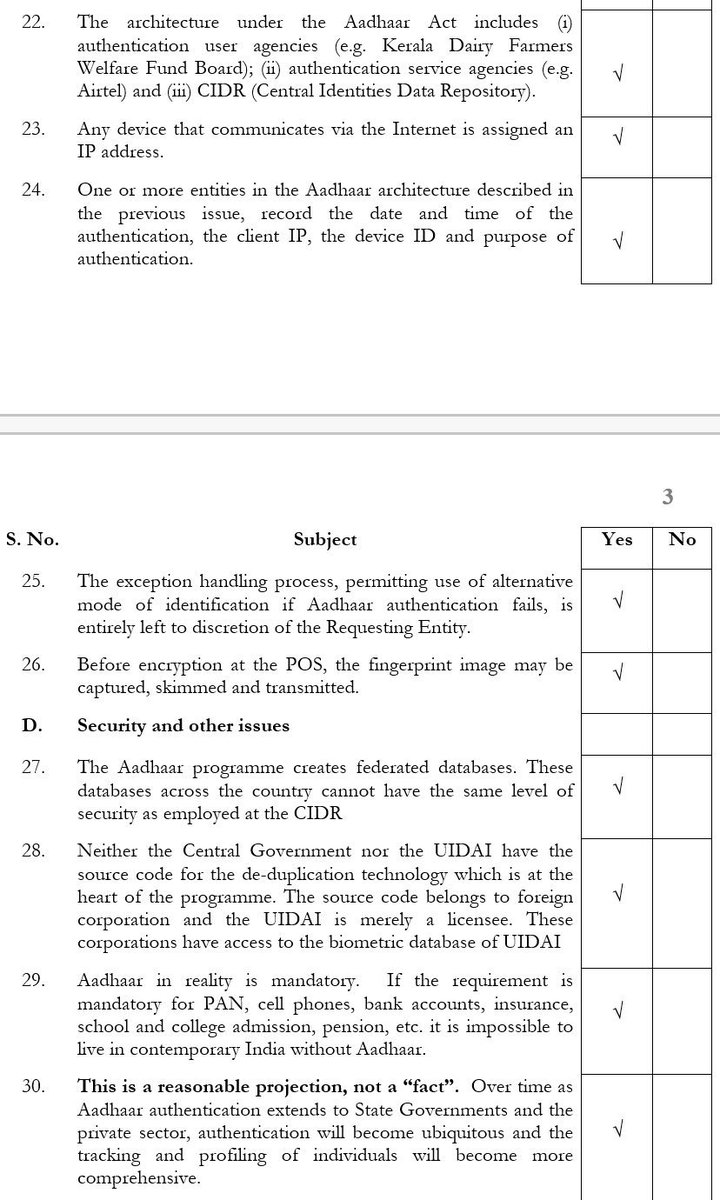
Now reading the list of AUAs and KUAs and how it is not a limited list as indicated by the Respondents at all.
He emphasises how it cannot be any inpartial....
1. Anyway those actions ultravires 2009 notification can never be saved. Like collecting biometrics.
2. West Ramnad and Hari singh cases that A-G ans Dwivedi cited have no application in this case given there was no prior law.
DYC J asks about what to do with data collected prior to 2016 act.
Bench rises for lunch.
Hands over a compilation of notification lists under various classes under Section 7.
1. Dealing with Children - mid day meal, sarva siksha abhiyan.
2. Dealing with health - TB , abortion services.
3. Stigma is involved.
And other categories.
Points out how additional secretaries and advisors have signednotification...violating orders of the Court.
Makes a point about how its a retrogression of rights when you make statutory rights conditional.
1. Cannot create a second class citizenry.
2. Overall effects of all statutes need to be looked into. With everything. We take it together are an overextension of coercive power of the State.
3. Alternate identification should..
4. Dignity.
5. How every Section 7 notification is void because of being contrary to 15.10.2015 order.
Next point on Money Bill.
DYC J and Sikri J appreciate that argument.
SD then next comes to fhe demographic data. Rebuts the proposition that there is no reasonable expectation of privacy in it. Gives examples of sensitive info like address name or mobile #.
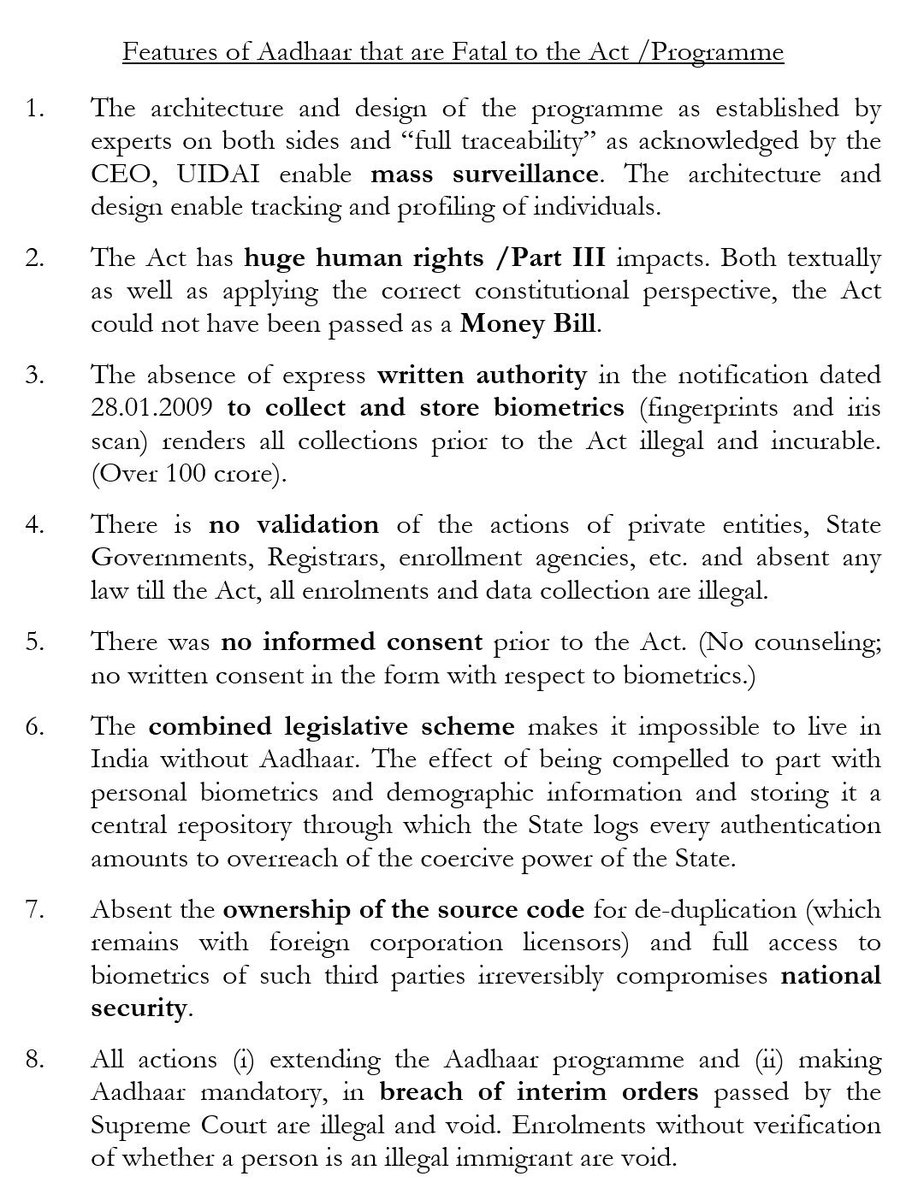
SD concludes by citing the preamble and how each word is pregnant with a lot of thought and meaning and that in his view of choice and democracy and not...
1. No evidence by State.
2. Deduplication rejects
3. Contracts and information control completely ceded.
A special oration on UID being a numbering scheme. First question to ask is whether it empowers or disempowers.
Section 7 disempowers the individual and empowers everyone else. The state. The intermediary and everyone.

